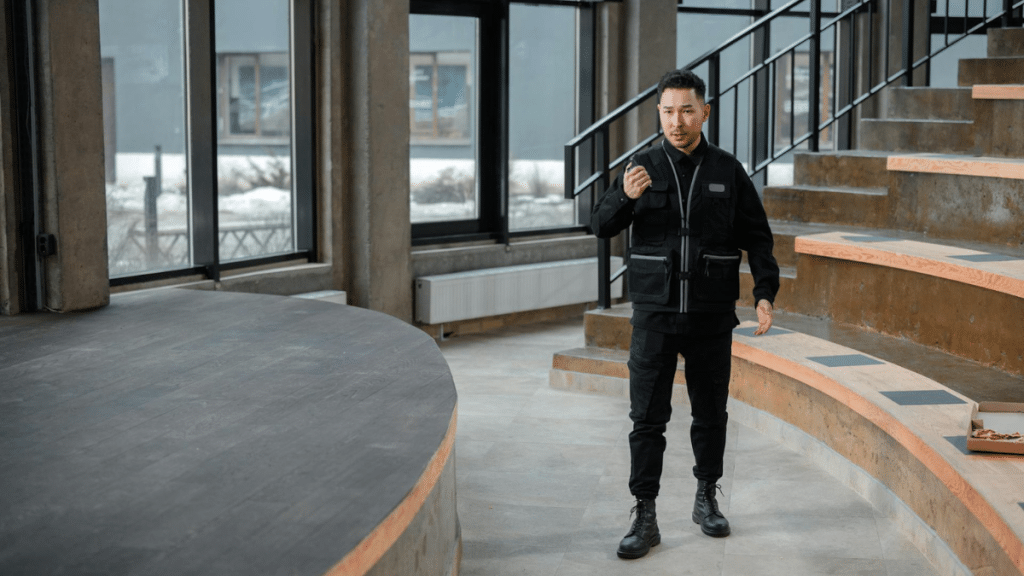Security needs must be prioritised during both event management and participation. Special events that gather numerous people in energetic spaces mandate that the safety of guests be the primary objective. Security staff fulfil essential responsibilities by keeping the area orderly while protecting against interferences until they can resolve emergencies. Door supervisors maintain special importance within the different security personnel responsibilities because of their essential role in venue protection. The primary duties of security personnel extend further than entrance supervision since they must maintain event-wide smooth operation with controlled conditions. The following report examines security staff duties at events while discussing their multiple safety contributions at these events.
The Importance of Venue Security
Exclusive security procedures with planned risk responses are essential for all events, from concerts to corporate meetings and sports competitions. Security staff implement these protocols to ensure a safe and orderly environment. Their primary role is controlling crowd sizes, preventing overcrowding, securing emergency exits, and enforcing event rules.
Door supervisors also identify risks early to prevent potential threats from escalating. They conduct threat assessments through baggage inspections, metal scanners, and vigilant observation. Their visible presence and protective actions reassure attendees, ensuring a secure event experience.
Preventing Unauthorised Access
Security personnel utilise their essential role to stop unauthorised entry into restricted areas such as entrances, VIP sections, and backstage zones. The monitoring team at entry points verifies guest identification and authorised entry with proper credentials according to ticket access requirements. Security protocols enforced by personnel protect event integrity while enforcing designated boundaries for visitors. Security staff use their knowledge to manage crowds while controlling capacity thresholds that stop people from overcrowding spaces, reducing accidents, and maintaining public order.
Responding to Emergencies
Emergencies become unpredictable, and security staff must respond rapidly and proficiently during these events. Security personnel with proper training can manage medical incidents, fires, and conflicts by protecting the general public. Security staff lead people to safety while blocking panic until they help everyone escape danger. Security personnel complete first aid training that enables them to deliver prompt medical aid until professional medical services are available. Their rapid reaction serves as the main instrument to stop disorder from developing.
Crowd Control and De-Escalation
Event security faces tough challenges when managing extended groups of people. Security personnel step in to maintain order when crowd members become rowdy and must do so calmly to avoid further problems. Security personnel need to keep a firm but friendly attitude for effective communication. Security professionals who learn crowd behaviour patterns develop new operational methods that create safe environments and remain non-aggressive to civilians. At concerts and other lively events, security personnel maintain order and ensure the safety of attendees by managing unruly behaviour.
Surveillance and Monitoring
In addition to their physical presence, security staff also monitor events through surveillance systems. These systems play a critical role by revealing potential dangers that security guards looking at the scene from floor level cannot detect. Through closed-circuit television (CCTV), personnel gain surveillance of multiple venue areas to spot abnormal or suspicious activity.
Surveillance monitoring also helps identify potential hazards, such as a blocked exit or an aggressive individual. Security personnel can quickly intervene and prevent a situation from escalating through constant observation.
Collaborating with Local Authorities
Security staff develop connections with emergency responders alongside local law enforcement to respond to security situations. The first defence presence at significant events belongs to security personnel rather than law enforcement agencies. Security personnel can seek help from local police authorities if necessary events demand their intervention to maintain appropriate professional management of situations.
Security personnel have the additional duty of reporting and maintaining logs of every incident during an event. The recorded information proves helpful when insurance companies and law enforcement must evaluate the circumstances afterwards.
The Role of Security Staff in VIP Protection
Security personnel at all high-profile events must protect VIPS alongside identified high-risk individuals. Regardless of their category, they protect people who may face targeted actions—celebrities, business leaders, or government officials.
Specialised training is necessary for this kind of protective operation. Security personnel must provide intraoperative protection for VIPS by walking alongside them during risky situations, monitoring their location in crowded events, and safeguarding their safety throughout all areas. VIP security collaborates with local law enforcement agencies to deliver security measures that address the personal needs of the protected individuals.
Ensuring Compliance with Regulations
The security staff must ensure that all event operations meet safety requirements and legal standards. Their duties encompass watching drinking behaviour and inspecting IDS while maintaining rules about what items guests are not permitted to bring. Security staff take steps to minimise event disturbances before removing individuals who violate the rules from the venue.
Healthcare rules become vital when dealing with the COVID-19 pandemic. The staff conducts security operations to protect health mandates, including enforcing distancing rules and protective mask requirements for public safety.
Conclusion
Security staff are vital in ensuring the safety and order of events. Their duties go beyond ticket checks and encompass crowd control, emergency response, VIP protection, and regulatory compliance. They are key in restricting access to authorised individuals and maintaining order. By managing risks and addressing issues swiftly, security personnel create a secure environment, allowing attendees to enjoy the event with peace of mind.
